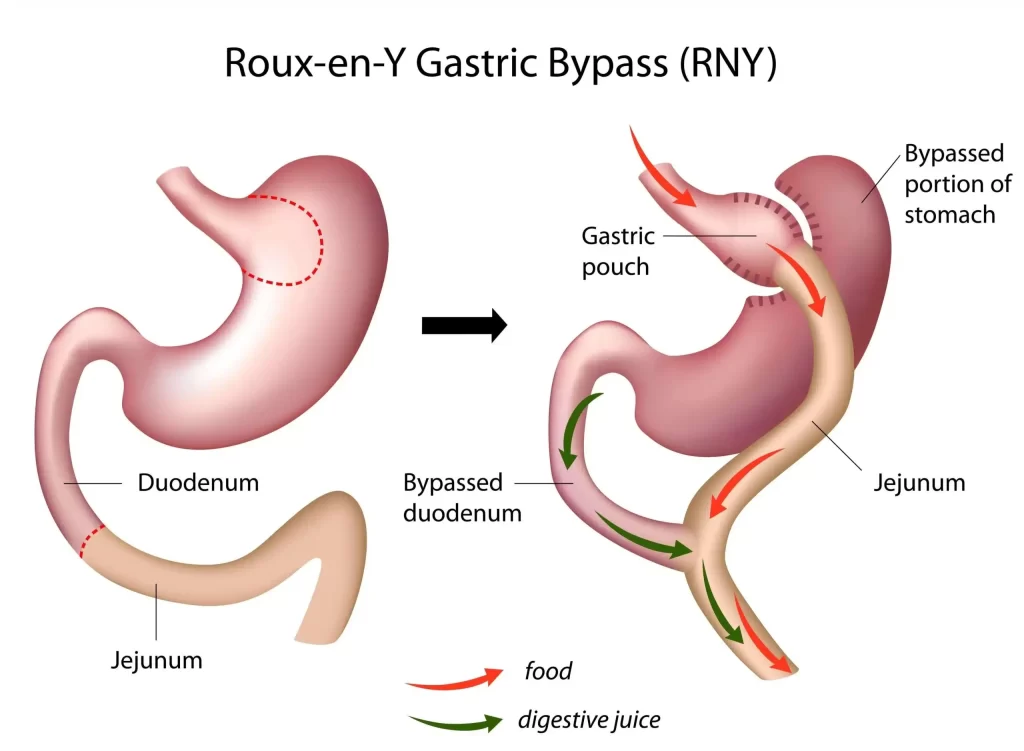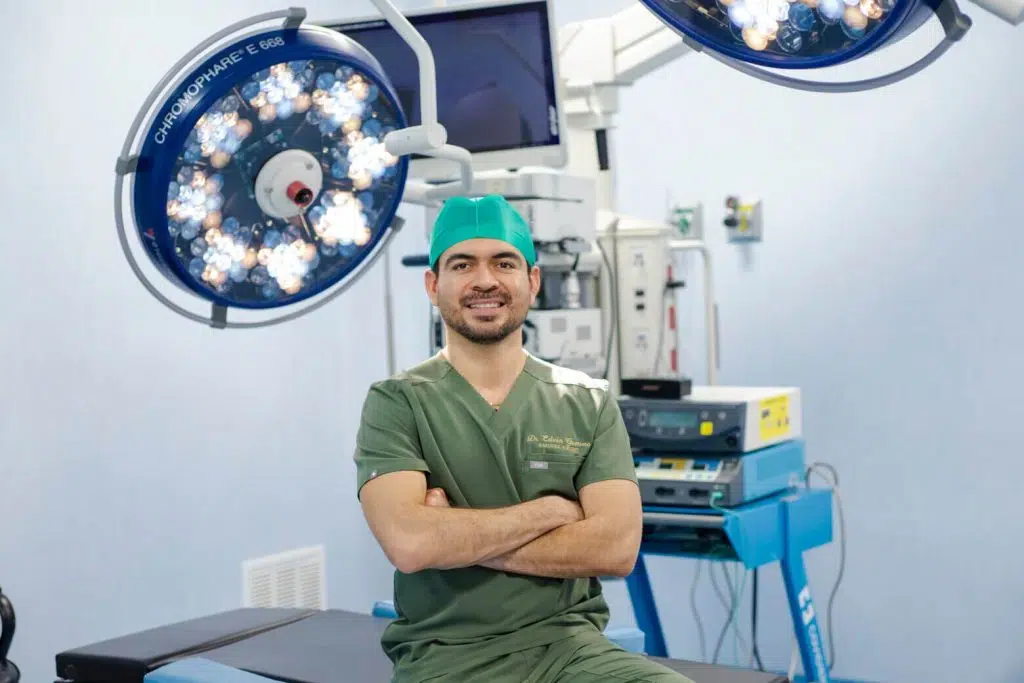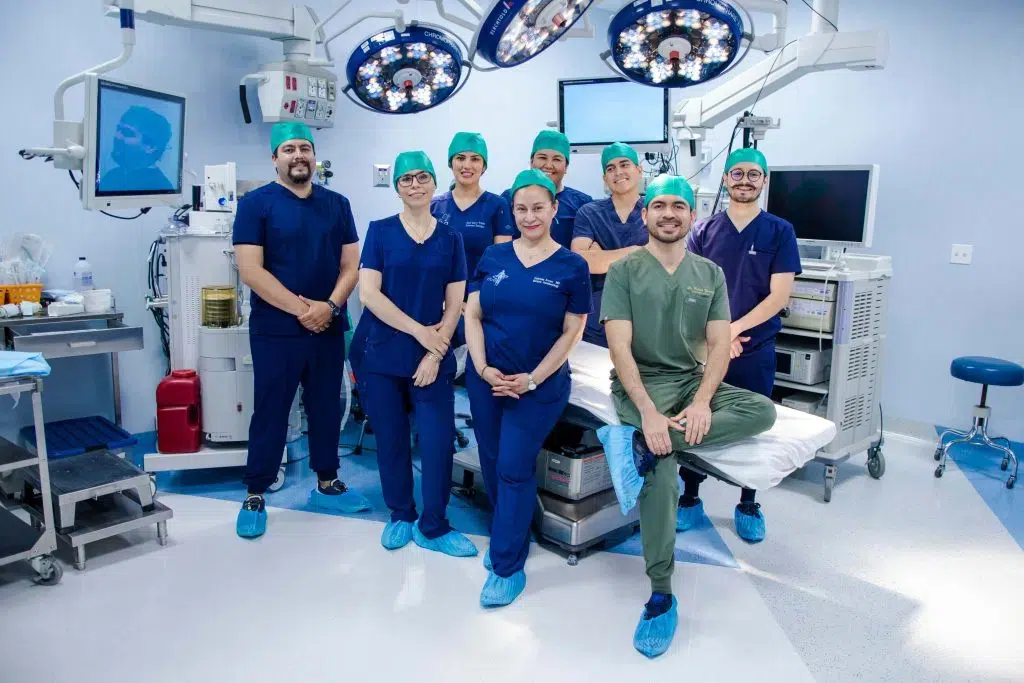Bariatric Surgeons
Our board-certified bariatric surgeons specialize in gastric bypass surgery, delivering personalized care and advanced techniques to ensure long-term success in your weight loss journey. With extensive experience, they provide the highest standard of care, ensuring each patient’s safety and well-being.
Transparent Pricing
We offer transparent and upfront pricing for gastric bypass surgery in Tijuana, Mexico, providing you with a detailed and clear breakdown of all costs. With no hidden fees or surprises, you’ll have a full understanding of the financial investment required for your health, well-being, and long-term weight loss journey.
Medical Tourism
Discover the benefits of medical tourism in Tijuana, where you can access affordable, high-quality gastric bypass surgery with unmatched care and convenience. Tijuana’s proximity to the U.S. and its world-class medical facilities make it a top choice for international patients seeking exceptional care at a fraction of the cost.
Gastric Bypass Surgery Success Story

Gastric Bypass Surgery Transformation

Cost of Gastric Bypass Surgery in Tijuana, Mexico
By choosing Jet Medical Tourism in Tijuana, you receive high-quality care at costs up to 70% lower than in the United States or Canada. Our transparent pricing means you’ll know the total cost upfront. The price for gastric bypass surgery is $6,050, and this includes standard services as part of our comprehensive medical travel package in Tijuana:
- BOARD-CERTIFIED BARIATRIC SURGEONS
- 2 NIGHTS HOSPITAL STAY
- 1 NIGHT HOTEL POST SURGERY
- PRIVATE HOSPITAL ROOM
- SURGEON FEES
- ANESTHESIOLOGIST FEE
- ANITBIOTIC & PAIN MEDICATIONS
- PRE-OP LAB TEST (EKG, X-ray, blood work)
- POST OP TESTS
- LEAK TEST
- GROUND TRANSPORTATION
- ONLINE SUPPORT GROUP
Gastric bypass is a more complex weight loss surgery than other procedures, such as the gastric sleeve, which results in a higher cost. However, prices for gastric bypass in Mexico are still significantly lower than in the United States or Canada. To help make the procedure more affordable, we offer payment plans through medical financing companies.
Jet Medical Tourism’s gastric bypass package does not include airfare, non-standard tests, take-home medications ($70), or additional fees for revisions ($795), high BMI (> 48.5 = $795), or extra procedures like gallbladder removal or hernia repair ($795).
Qualifications for Gastric Bypass Surgery
To be eligible for gastric bypass surgery, potential candidates generally meet certain criteria to ensure the procedure’s effectiveness and safety:
BMI Requirements
Candidates generally have a BMI of 40 or above, or a BMI of 35 or higher along with obesity-related health conditions such as type 2 diabetes, high blood pressure, or sleep apnea.
Age Criteria
Typically, those who fall within the age range of 18 to 65 are considered suitable candidates for Roux-en-Y gastric bypass surgery, though age-related factors may vary by individual case.
Unsuccessful Weight Loss Attempts
Candidates should have a history of trying to lose weight through diet, exercise, or other weight-loss methods without lasting success.
Willingness to Commit to Lifestyle Changes
The effectiveness of gastric bypass surgery relies on the patient’s dedication to adopting healthy lifestyle changes. Although the surgery is a valuable tool for weight loss, success depends on your ability to establish new eating habits and maintain a healthy lifestyle to prevent weight regain. Achieving long-term success means staying committed to these lifestyle changes permanently.
5-Star Gastric Bypass Patient Testimonials
Patients at Jet Medical Tourism® in Tijuana, Mexico, consistently leave 5-star reviews for their gastric bypass surgery. They commend the expertise of our board-certified surgeons and the seamless, supportive care from start to finish.
“According to an analysis of 2020 health ministry data by Patients Beyond Borders, Americans can typically save between 40% and 60% on the most common major procedures sought by medical tourists in Mexico.”
Book Your Virtual Consultation for Gastric Bypass!
Thinking about gastric bypass surgery in Tijuana? At Jet Medical Tourism®, we provide free, no-obligation virtual consultations with our board-certified bariatric surgeons to help you determine the best weight loss solution for your unique needs. This convenient service lets you speak with a specialist without leaving the comfort of your home.
Just complete our online form or give us a call at (855) 506-6188 to schedule your virtual consultation today and take the first step toward a healthier future with gastric bypass surgery in Mexico.
Frequently Asked Questions
Find answers to common inquiries about gastric bypass surgery in Tijuana, Mexico.
- Henry Buchwald, Yoav Avidor, Eugene Braunwald, et al. “Bariatric Surgery: A Systematic Review and Meta-Analysis.” Journal of the American Medical Association. 2004;292(14):1724-37 ↩︎
- Henry Buchwald, Yoav Avidor, Eugene Braunwald, et al. “Bariatric Surgery: A Systematic Review and Meta-Analysis.” Journal of the American Medical Association. 2004;292(14):1724-37 ↩︎
- Henry Buchwald, Yoav Avidor, Eugene Braunwald, et al. “Bariatric Surgery: A Systematic Review and Meta-Analysis.” Journal of the American Medical Association. 2004;292(14):1724-37 ↩︎



